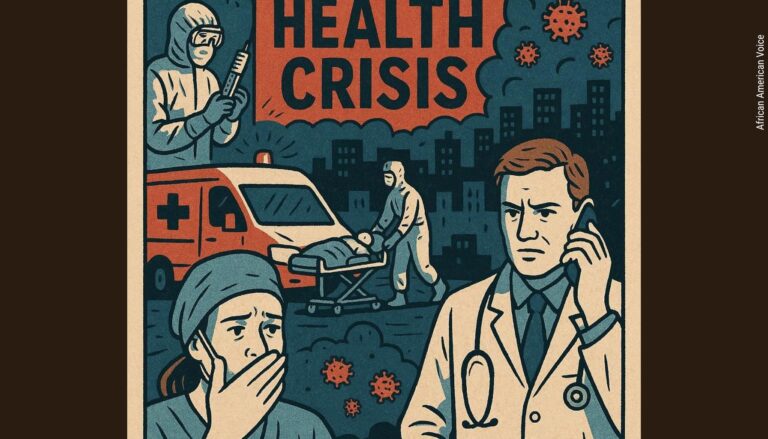
by
This story was originally published online with Word In Black, a collaboration of the nation’s leading Black news publishers (of which The Informer is a member).
It was hailed as a landmark moment for climate justice — a down payment on a greener, more equitable future.
Last August, the Environmental Protection Agency (EPA) awarded a historic $27 billion in federal dollars to combat climate change through the Greenhouse Gas Reduction Fund, the so-called green bank established through the Inflation Reduction Act. The first-of-its-kind program was designed to invest in clean energy and other climate-mitigation programs, with 40% earmarked for Black, Brown and otherwise disadvantaged communities under President Biden’s now-gutted Justice40 initiative.
But now, the Trump administration is attempting something unprecedented: clawing back tens of billions of dollars in grants that have already been distributed.
The move marks a dramatic escalation in the partisan battle over climate spending and raises questions about the stability of federal contracts. At stake is not just the fate of clean energy projects in Black and Brown communities, but the integrity of the government’s ability to follow through on its promises.
When the funds were awarded last summer, then-EPA Administrator Michael S. Regan framed the urgency of the moment.
“With climate impacts increasingly impacting all Americans, and especially those in communities that have been historically left behind, EPA knew it had to move swiftly and deliberately to get this historic funding out the door,” Regan said in a statement in August — only weeks ahead of the deadline set by Congress when it passed the Inflation Reduction Act two years prior.
There was another clock ticking too, however: the Biden administration was in its lame-duck period, and a potential Trump presidency loomed on the horizon. Climate-justice spending, in particular, needed to happen sooner rather than later.
Now the Trump EPA is taking the unprecedented step of attempting to claw back tens of billions in already-distributed grants.
An EPA webpage that somehow still remains online describes the GGRF program as “a $27 billion investment to mobilize financing and private capital to address the climate crisis, ensure our country’s economic competitiveness, and promote energy independence while delivering lower energy costs and economic revitalization to communities that have historically been left behind.”
But things look very different from the perspective of the Trump EPA.
“The days of irresponsibly shoveling boatloads of cash to far-left activist groups in the name of environmental justice and climate equity are over,” Lee Zeldin, the new EPA administrator, said last week.
More Exposure to Greenhouse Gases
Meanwhile, the stakes for Black communities couldn’t be higher.
The American Lung Association’s 2024 State of the Air report found that Black people and other people of color are 2.3 times more likely to be exposed to unhealthy air than white people.
Black folks are also more likely to have a chronic condition like asthma that can be worsened by exposure to greenhouse gases like ozone.
In addition, 100 million Americans — and not just Black and Brown people — live in communities with unhealthy levels of ozone pollution.
What Happens if the EPA Reneges?
Fixing that no longer seems to be the EPA’s focus and Zeldin claimed the transfer of funds to a private bank — government practice for more than 40 years — is a red flag.
“Roughly $20 billion of your tax dollars were parked at an outside financial institution by the Biden EPA. This scheme was the first of its kind in EPA history and it was purposefully designed to obligate all of the money in a rush job with reduced oversight,” Zeldin said.
That $20 billion was moved, by design, to Citibank with the assistance of the
Treasury Department, and sits in accounts held by grant recipients from the fund’s two major programs: the $14 billion National Clean Investment Fund, and the $6 billion Clean Communities Investment Accelerator, which is designed to bring funds to low-income communities in particular.
The other $7 billion in the overall Greenhouse Gas Reduction Fund budget is for the Solar For All program, which works on accessibility and affordability for clean energy; that money is still held by the federal government, not a private bank.
Unlike the Trump Administration’s efforts to freeze federal funds, or Elon Musk’s attempts through the Department of Government Efficiency (DOGE) to cut the budgets of certain federal programs like Medicaid, the EPA is trying to get back money that it has already paid out — and that makes what Zeldin is attempting more challenging and potentially more destabilizing on the long-shot chance that he is successful. Because without evidence that there has been fraud — which EPA has yet to provide — pulling back the $20 billion would mean tearing up the contract that the government made with both the recipients of the funds and Citibank too.
The most likely outcome of the EPA reneging on the grants is a series of lawsuits and eventual payouts of even more money if and when the agency eventually loses those cases in court, which it likely would.
“If the government abrogates the contract without legal justification, then it will eventually owe damages to these people when they sue, but will not be getting the services that are under contract here,” David Super, a professor at Georgetown University Law Center, told Politico’s E&E News.
But, the legal risks don’t seem to be slowing down Zeldin’s EPA.
Read more on wordinblack.com.
Source: Published without changes from Washington Informer Newspaper







